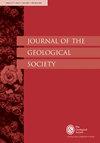Organic geochemistry of in situ thermal-based analyses on Mars: the importance and influence of minerals
IF 3
3区 地球科学
Q2 GEOSCIENCES, MULTIDISCIPLINARY
引用次数: 0
Abstract
A high priority goal for past, present and future missions to Mars is the search for evidence of past or present life. Some of the most information-rich signals are those represented by organic biomarkers. Thermal extraction has historically been the most popular in situ analysis technique employed on Mars owing to its elegance and ability to liberate both small compounds and large macromolecular networks. The geological record of Mars contains a variety of minerals, some of which can interact with organic matter when subjected to thermal extraction. Here we discuss the organic records that may be associated with these mineral hosts and the problems encountered when mineral-organic mixtures are analysed by thermal-based methods. We also suggest potential mitigations for future experiments of a similar nature and note that these mitigating steps can be applied not only in situ on Mars but also after samples are returned to Earth as part of Mars Sample Return where more resources and time for sample preparation are available. Thematic collection: This article is part of the Astrobiology: Perspectives from the Geology of Earth and the Solar System collection available at: https://www.lyellcollection.org/topic/collections/astrobiology火星原位热分析的有机地球化学:矿物的重要性和影响
在过去、现在和未来的火星任务中,一个高度优先的目标是寻找过去或现在生命存在的证据。一些信息最丰富的信号是那些由有机生物标志物代表的信号。热萃取历来是火星上最流行的原位分析技术,因为它的优雅和释放小化合物和大分子网络的能力。火星的地质记录包含多种矿物质,其中一些在热提取时可以与有机物相互作用。在此,我们讨论了可能与这些矿物寄主有关的有机记录,以及用基于热的方法分析矿物-有机混合物时遇到的问题。我们还为今后类似性质的实验提出了可能的缓解措施,并指出,这些缓解措施不仅可以在火星上就地实施,而且可以在样品作为火星样品返回的一部分返回地球后实施,因为那里有更多的资源和时间用于样品制备。专题合集:这篇文章是天体生物学的一部分:从地球地质学和太阳系合集的观点:https://www.lyellcollection.org/topic/collections/astrobiology
本文章由计算机程序翻译,如有差异,请以英文原文为准。
求助全文
约1分钟内获得全文
求助全文
来源期刊

Journal of the Geological Society
地学-地球科学综合
CiteScore
6.00
自引率
3.70%
发文量
68
审稿时长
6-12 weeks
期刊介绍:
Journal of the Geological Society (JGS) is owned and published by the Geological Society of London.
JGS publishes topical, high-quality recent research across the full range of Earth Sciences. Papers are interdisciplinary in nature and emphasize the development of an understanding of fundamental geological processes. Broad interest articles that refer to regional studies, but which extend beyond their geographical context are also welcomed.
Each year JGS presents the ‘JGS Early Career Award'' for papers published in the journal, which rewards the writing of well-written, exciting papers from early career geologists.
The journal publishes research and invited review articles, discussion papers and thematic sets.
 求助内容:
求助内容: 应助结果提醒方式:
应助结果提醒方式:


